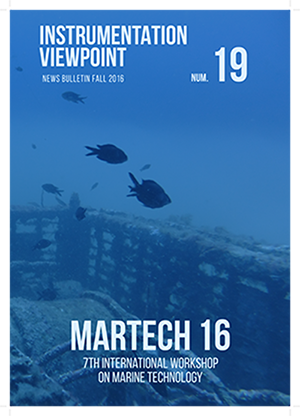Omnidirectional underwater surveying and telepresence
Resumen
Exploratory dives are traditionally the first step for marine scientists to acquire information on a previously unknown area of scientific interest. Manned submersibles have been the platform of choice for such exploration, as they allow a high level of environmental perception by the scientist on-board, and the ability to take informed decisions on what to explore next. However, manned submersibles have extremely high operation costs and provide very limited bottom time. Remotely operated vehicles (ROVs) can partially address these two issues, but have operational and cost constraints that restrict their usage. This paper discusses new capabilities to assist scientists operating lightweight hybrid remotely operated vehicles (HROV) in exploratory missions of mapping and surveying. The new capabilities, under development within the Spanish National project OMNIUS, provide a new layer of autonomy for HROVs by exploring three key concepts: Omni-directional optical sensing for collaborative immersive exploration, Proximity safety awareness and Online mapping during mission time.Descargas
Número
Sección
Licencia
Universitat Politècnica de Catalunya has joined the Berlin Declaration on Open Access to Knowledge in the Sciences and Humanities. This declaration proposes the universal acces to the results of scientific and technical research.
All papers presented at Martech will be published in both the UPCommons and the Martech organization web sites, the former being the institutional digital deposit of Universitat Politècnica de Catalunya (https://upcommons.upc.edu). This difussion will be made through the Creative Commons License Attribution-NonCommercial-NoDerivs 2.5 or similar (http://creativecommons.org/licenses/by-nc-nd/2.5/deed.en).
When sending the final paper, the author must agree to the conference having non-exclusive rights on this operation. The author will maintain his/her right to diffuse the paper elsewhere.







